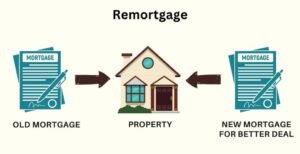
The UK comprises four nations, each with its own distinct legal system and processes for buying property. Understanding these differences can ensure a smooth and successful home buying experience. Here’s a breakdown of the key distinctions between purchasing a property in England, Scotland, Wales, and Northern Ireland.
1. The Legal Process:
- England & Northern Ireland: The conveyancing process, handled by solicitors, involves extensive pre-contract searches. Exchange of contracts creates a legally binding agreement.
- Scotland: Solicitors (or licensed conveyancers) are involved, but the seller must provide a comprehensive Home Report upfront. There’s a “missives” stage before a legally binding agreement is formed.
2. Surveying:
- England & Wales: Buyers typically commission their own property survey to assess the condition (optional, but highly recommended).
- Scotland: The Home Report, provided by the seller, includes a survey element. Buyers might still want a more in-depth survey for peace of mind.
- Northern Ireland: Similar to England & Wales, buyers typically arrange their own property survey.
3. Financial Aspects:
- England & Northern Ireland: Stamp Duty Land Tax (SDLT) is payable on property purchases above a certain threshold. The rate is tiered.
- Scotland: Land and Buildings Transaction Tax (LBTT) applies to property purchases. The rate structure differs from SDLT.
- Wales: Land Transaction Tax (LTT) is levied on property purchases, with its own set of rates.
4. Additional Considerations:
- Fixtures and Fittings: In England & Wales, fixtures and fittings are usually included in the sale unless explicitly excluded. In Scotland, these are generally excluded unless specified otherwise.
- Right to Buy: This scheme allows tenants to purchase their council house at a discount. Availability and restrictions vary across the UK nations.
Remember: While these are some key distinctions, it’s crucial to seek professional guidance from a solicitor or licensed conveyancer qualified in the specific nation you’re buying in. They can provide a more detailed explanation of the process and ensure you navigate the legalities smoothly.
Happy House Hunting!






